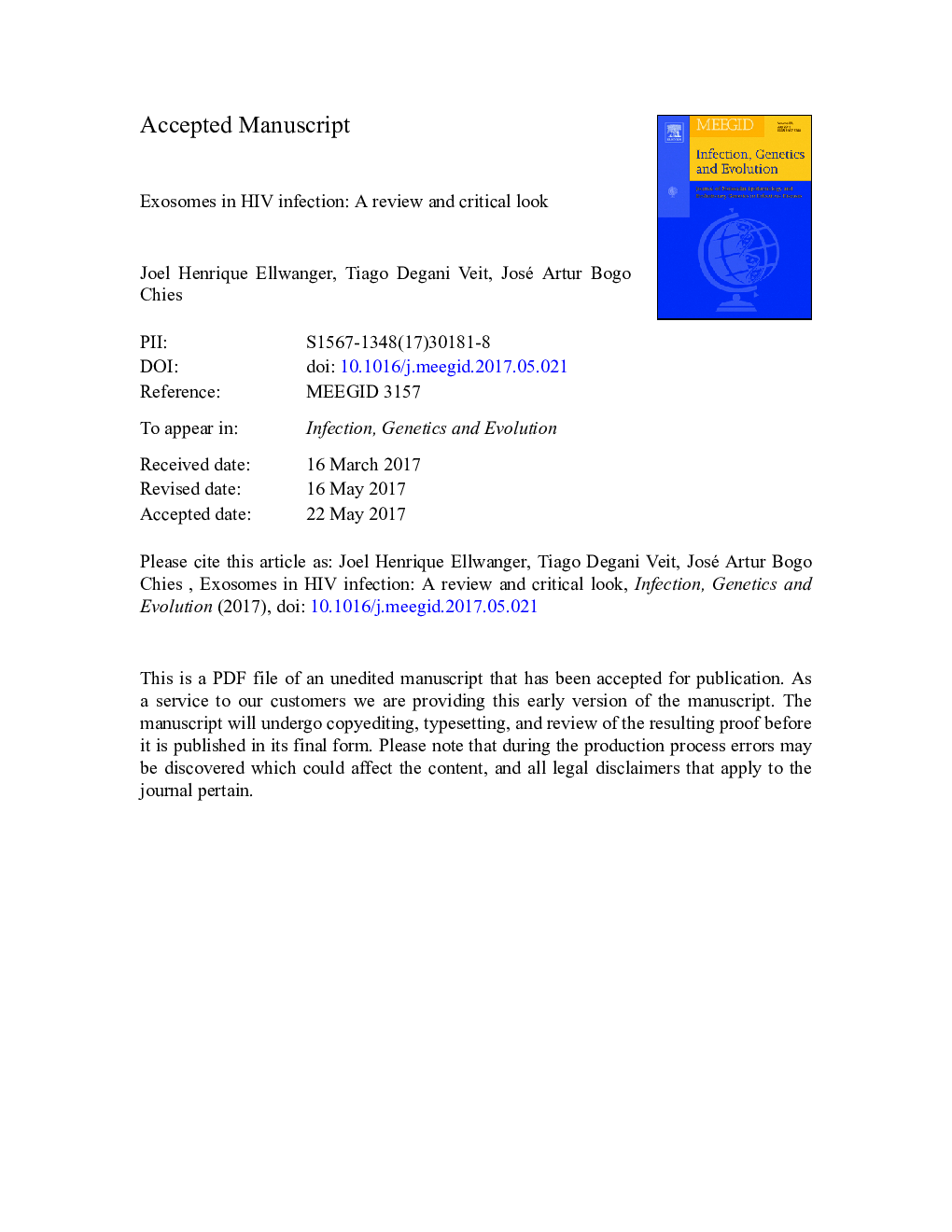| Article ID | Journal | Published Year | Pages | File Type |
|---|---|---|---|---|
| 5590651 | Infection, Genetics and Evolution | 2017 | 33 Pages |
Abstract
Exosomes are nanovesicles released into the extracellular medium by different cell types. These vesicles carry a variety of protein and RNA cargos, and have a central role in cellular signaling and regulation. A PubMed search using the term “exosomes” finds 67 articles published in 2006. Ten years later, the same search returns approximately 1200 results for 2016 alone. The growing interest in exosomes within the scientific community reflects the different roles exerted by extracellular vesicles in biological systems and diseases. However, the increase in academic production addressing the biological function of exosomes causes much confusion, especially where the focus is on the role of exosomes in pathological situations. In this review, we critically interpret the current state of the research on exosomes and HIV infection. It is plausible to assume that exosomes influence the pathogenesis of HIV infection through their biological cargo (primarily membrane proteins and microRNAs). On the other hand, evidence for a usurpation of the exosomal budding and trafficking machinery by HIV during infection is limited, although such a mechanism cannot be ruled out. This review also discusses several biological aspects of exosomal function in the immune system. Finally, the limitations of current exosome research are pointed out.
Related Topics
Life Sciences
Agricultural and Biological Sciences
Ecology, Evolution, Behavior and Systematics
Authors
Joel Henrique Ellwanger, Tiago Degani Veit, José Artur Bogo Chies,
